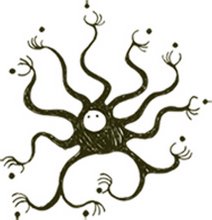The demographic boom and the fast modernisation of the Island brought new ideas, philosophic trends and new challenges. In the last years of the late modern era, in the mystical centre, a new thinking movement was born, inspired of their ancestors from year 800 ECHS, who posed new questions: “ If we get to know everything about our Island what else can we do?(…); we are sure that we are isolated from other people, from the whole world. Do we want to know them or we will stay in this safe isolation? It’s ignorance or fear? (…); in which point of the history of the world we are now? What we can give other people and other civilisations, what they can give to us?”. In 70’s movement received a name as II Thinking Movement, and in this time, similar as in 1910 ECHS, the role of young people was crucial.
Members of the movement convinced the council to the idea of the exploration, as a way to develop life in the island. They decided also to add a new paragraph to the constitution (§5. One should remember that you are equally blind when staring at the sun as when wondering in the darkness).
In 2178 ECHS Council decided to send first explorers, to the first land from Enrisuoma. Preparations took 2 years and in the beginning of 2180 Captain Plito went with 11men to an expedition. They reached ……. island and they made a contact with one of the European climate base. After beaten the border of communication, that base was a great source of knowledge for both sides. Enrisoumalainen get to know about geography, languages, etc. After half of a ECHS year, the expedition came back. The success of the first exploration was a great impulse to keep on programme of the exploration idea. In the next years, navigation studies were further developed, as well as language courses. Due to the expeditions, enrisuoma’s language was transferred in the Latin system of letters. In 2187 ECHS the first “exploration Europe” group started, and in the second half of the year, reached the west coast of France.

No comments:
Post a Comment